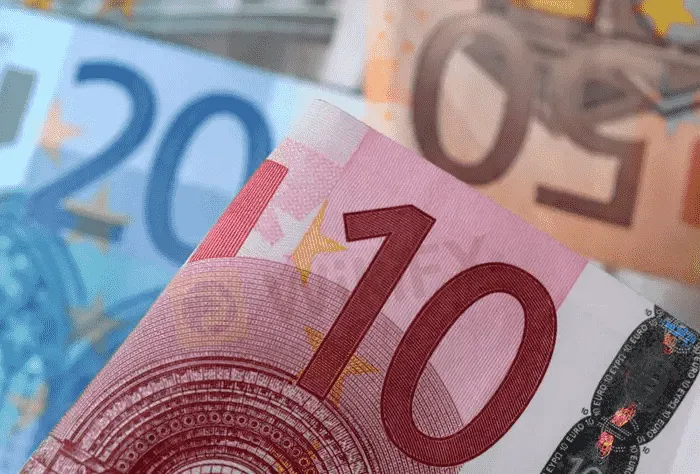简体中文
繁體中文
English
Pусский
日本語
ภาษาไทย
Tiếng Việt
Bahasa Indonesia
Español
हिन्दी
Filippiiniläinen
Français
Deutsch
Português
Türkçe
한국어
العربية
Euro zone yields fall, German real rates in positive territory
Abstract:Euro zone debt yields fell on Friday after a sharp bond selloff earlier this week but anxiety persisted about central banks’ monetary tightening path and possible erratic moves in UK gilts.

Yields fell even as euro zone inflation zoomed past forecasts to hit 10.0% in September, a new record high, as expected by analysts after German data showed consumer prices increased by 10.9% over the year.
Following a surge triggered by British Prime Minister Liz Truss‘ controversial plan to reignite economic growth with tax cuts, British government bond markets have relatively calmed since the Bank of England announced bond purchases on Wednesday to ease market stress. Investors said they’d still wait for a credible plan to keep debt under control.
In the euro zone bond market, which has been hit by the UK-driven volatility, by 1512 GMT, Germanys 10-year government bond yield was down 9 basis points (bps) at 2.12%, considerably below the highest since December 2011 it touched at 2.35% on Wednesday.
However, it was set to end the month sharply higher, up 58 bps in September in the second-biggest monthly rise on record since 1990.
German real rates were still in positive territory, with the 10-year inflation-linked bond yield last at 0.05%.
A key market gauge of long-term inflation expectations fell to its lowest in over six weeks at 2.07%, in a sign that markets think the European Central Banks next moves will be effective in taming the rise of consumer prices.
“European Central Bank officials have all the reason to continue stepping up the hawkish rhetoric,” ING analysts said, referring to German and euro zone inflation data.
ECB policymakers voiced more support on Thursday for another big interest rate hike.
“Spain‘s (ECB policymaker Pablo Hernandez) de Cos pitched the terminal rate at 2.25-2.5% yesterday. If that is the target, then an overall increase of at least another 150 bp is on the cards over the next ’several meetings,” ING analysts added.
The ECB raised its deposit rate to 0.75% earlier in September.
Italys 10-year government bond yield was last down 13 bps to 4.56%, with the spread between Italian and German 10-year yields at 242 bps.
Commerzbank analysts flagged that the recent jump in gilt yields triggered a widening in the Italian-German yield spread despite Italys election results being pretty much as expected.
“The UK experience probably played a role as market participants realise the consequences of an irresponsible economic policy,” they said in a note to clients.
“The same is true for the Italian government though. The recent market developments should thus give rise to prudent announcements from the new government,” they added.
Mario Draghi‘s outgoing government’s Economic and Financial Document (DEF) will form the framework for the 2023 budget to be examined by the European Union.

Disclaimer:
The views in this article only represent the author's personal views, and do not constitute investment advice on this platform. This platform does not guarantee the accuracy, completeness and timeliness of the information in the article, and will not be liable for any loss caused by the use of or reliance on the information in the article.
Read more

INFINOX Partners with Acelerador Racing for Porsche Cup Brazil 2025
INFINOX has teamed up with Acelerador Racing, sponsoring an Acelerador Racing car in the Porsche Cup Brazil 2025. This partnership shows INFINOX’s strong support for motorsports, adding to its current sponsorship of the BWT Alpine F1 Team.

The Daily Habits of a Profitable Trader
Every professional trader follows a structured approach to ensure they are well-prepared, disciplined, and able to seize opportunities with confidence. Whether you are a seasoned investor or an aspiring trader, adhering to a robust daily checklist can significantly enhance your performance. Use this checklist to check if you are a qualified trader

The Impact of Interest Rate Decisions on the Forex Market
Interest rate changes determine currency attractiveness, influencing capital flows and exchange rate trends. Understanding this mechanism helps investors navigate the forex market effectively.

How a Housewife Lost RM288,235 in a Facebook Investment Scam
A 47-year-old housewife in Malaysia recently fell victim to an online investment scam, losing a substantial sum of RM288,235 after engaging with a fraudulent scheme advertised on Facebook.
WikiFX Broker
Latest News
Interactive Brokers Launches Forecast Contracts in Canada for Market Predictions
Authorities Alert: MAS Impersonation Scam Hits Singapore
INFINOX Partners with Acelerador Racing for Porsche Cup Brazil 2025
The Impact of Interest Rate Decisions on the Forex Market
Billboard Warns of Crypto Scams Using Its Name – Stay Alert!
STARTRADER Spreads Kindness Through Ramadan Campaign
Rising WhatsApp Scams Highlight Need for Stronger User Protections
A Trader’s Worst Mistake: Overlooking Broker Reviews Could Cost You Everything
How a Housewife Lost RM288,235 in a Facebook Investment Scam
The Daily Habits of a Profitable Trader
Currency Calculator







